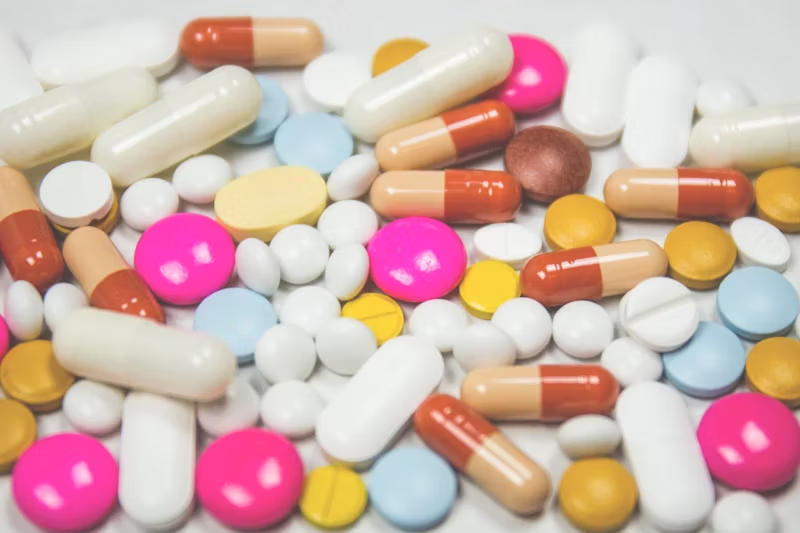Biotin: Supercharge Your Hair, Skin & Health
Biotin, also known as vitamin B7, is a water-soluble vitamin that plays a crucial role in various bodily functions. This essential nutrient supports metabolism, enzyme production, and cellular energy generation. Biotin benefits include promoting healthy hair, skin, and nails, as well as aiding in the breakdown of fats, carbohydrates, and proteins for energy production.

Biotin, also known as vitamin B7, is a water-soluble vitamin that plays a crucial role in various bodily functions. This essential nutrient supports metabolism, enzyme production, and cellular energy generation. Biotin benefits include promoting healthy hair, skin, and nails, as well as aiding in the breakdown of fats, carbohydrates, and proteins for energy production.
While biotin deficiency is rare, ensuring adequate intake can support overall health and well-being. The human body cannot synthesize biotin on its own, making it necessary to obtain this nutrient through diet or supplementation. Many foods naturally contain biotin, including eggs, nuts, seeds, and certain fruits and vegetables.
Recent research has explored potential additional benefits of biotin, such as its role in blood sugar regulation and pregnancy support. As interest in this versatile vitamin grows, more people are turning to biotin supplements to address specific health concerns or enhance their daily nutrient intake.
Understanding Biotin and Its Importance
Biotin, a crucial B vitamin, plays a vital role in various bodily functions. It supports metabolism, energy production, and the health of hair, skin, and nails.
What is Biotin?
Biotin, also known as vitamin B7, is a water-soluble B vitamin. It acts as a coenzyme in several metabolic processes. Biotin helps the body convert food into energy by assisting in the breakdown of carbohydrates, fats, and proteins.
This essential nutrient contributes to:
- Maintaining healthy hair, skin, and nails
- Supporting proper nervous system function
- Aiding in embryonic growth during pregnancy
Biotin deficiency is rare but can lead to hair loss, skin rashes, and brittle nails. Certain factors may increase the risk of deficiency, including pregnancy, excessive alcohol consumption, and specific medications.
Natural Sources of Biotin
Biotin can be found in various foods, making it relatively easy to obtain through a balanced diet. Some of the best natural sources include:
- Egg yolks
- Organ meats (liver, kidney)
- Nuts (almonds, peanuts)
- Seeds (sunflower seeds)
- Salmon and other fatty fish
- Sweet potatoes
- Avocados
Whole grains, dairy products, and leafy green vegetables also contain smaller amounts of biotin. Consuming a diverse diet helps ensure adequate biotin intake for most people.
Recommended Daily Allowance
The recommended daily allowance for biotin varies depending on age, sex, and life stage. For adults, the adequate intake (AI) is set at 30 micrograms (mcg) per day. Pregnant women may require slightly higher amounts, with a recommended AI of 35 mcg daily.
Age groups and their corresponding AI:
- Infants (0-12 months): 5-6 mcg
- Children (1-13 years): 8-20 mcg
- Adolescents (14-18 years): 25 mcg
- Adults (19+ years): 30 mcg
There is no established upper limit (UL) for biotin intake. However, excessive consumption through supplements is not recommended without medical supervision. Most people can meet their biotin needs through a balanced diet without the need for supplementation.
Health Benefits and Considerations
Biotin plays a crucial role in various bodily functions and has potential benefits for hair, skin, nails, blood sugar regulation, and pregnancy. Understanding its effects and proper usage is essential for maximizing its benefits.
Biotin for Hair, Skin, and Nails
Biotin is often touted for its potential to improve hair, skin, and nail health. While some anecdotal evidence supports these claims, scientific research remains inconclusive.
Biotin deficiency can lead to hair loss, skin rashes, and brittle nails. Supplementation may help address these issues in individuals with a deficiency.
For those with adequate biotin levels, additional supplementation might not provide noticeable benefits. Biotin is found naturally in foods like egg yolks, nuts, and whole grains.
It's important to note that biotin absorption can be affected by cooking methods. Consuming raw egg whites may interfere with biotin absorption.
Potential Effects on Blood Sugar and Diabetes
Biotin may play a role in blood sugar regulation and diabetes management. Some studies suggest it could help improve glucose metabolism.
In combination with chromium, biotin might enhance insulin sensitivity and glucose uptake. This could potentially benefit individuals with type 2 diabetes.
However, more research is needed to fully understand biotin's effects on blood sugar levels and its potential as a diabetes management tool.
Individuals with diabetes should consult their healthcare provider before starting biotin supplementation, as it may interact with medications or affect blood glucose readings.
Supporting Pregnancy and Breastfeeding
Biotin plays a crucial role during pregnancy and breastfeeding. It supports fetal development and helps maintain maternal health.
Pregnant women have an increased risk of biotin deficiency. Symptoms may include skin rashes, hair loss, and neurological issues.
Many prenatal vitamins include biotin along with other essential nutrients like folic acid. However, excessive biotin intake during pregnancy is not recommended.
Breastfeeding mothers may also benefit from adequate biotin intake to support their own health and provide sufficient amounts in breast milk for their infants.
Interactions and Side Effects
Biotin is generally considered safe when taken in recommended doses. However, it can interact with certain medications and affect laboratory test results.
Some medications may interfere with biotin absorption or metabolism. These include certain anticonvulsants and antibiotics.
Biotin can significantly interfere with various lab tests, potentially leading to false results. This includes tests for thyroid function and cardiac markers.
Side effects of biotin supplementation are rare but may include nausea, cramping, and diarrhea in some individuals. Biotin toxicity is unlikely due to its water-soluble nature.
The FDA does not regulate biotin supplements as strictly as medications. Therefore, it's important to choose reputable brands and consult a healthcare professional before starting supplementation.
Want more posts like this?Sign up for our FREE newsletter →